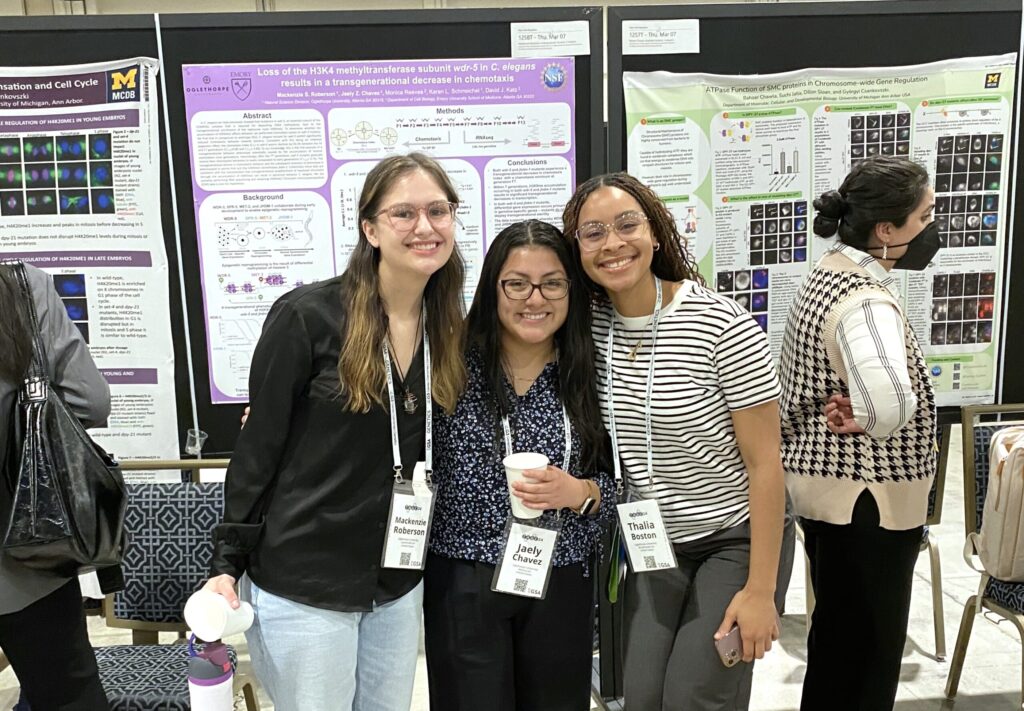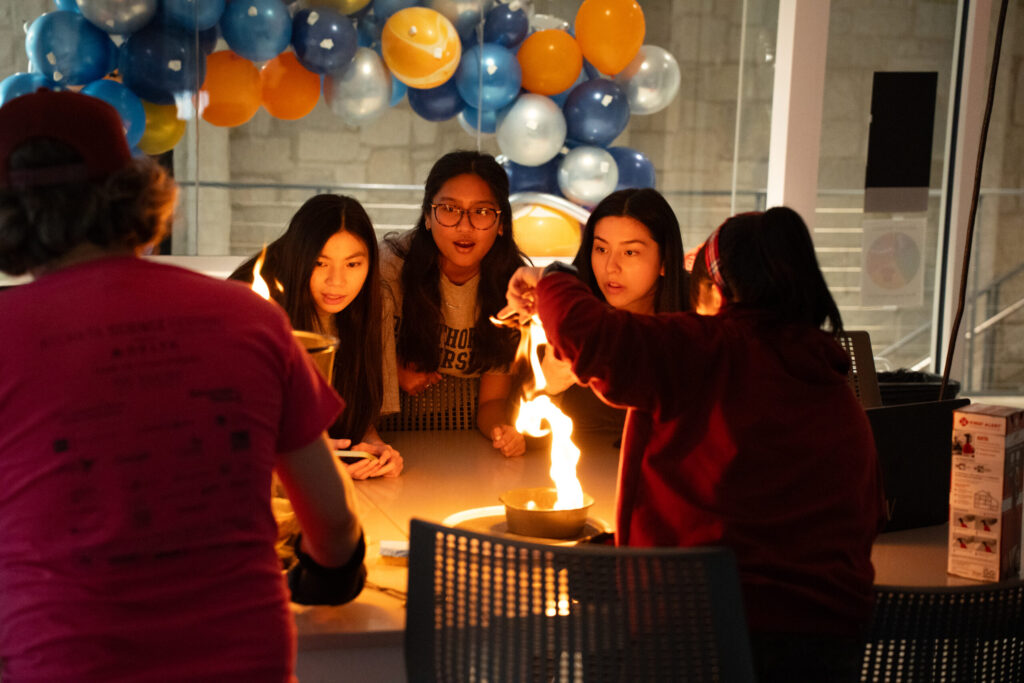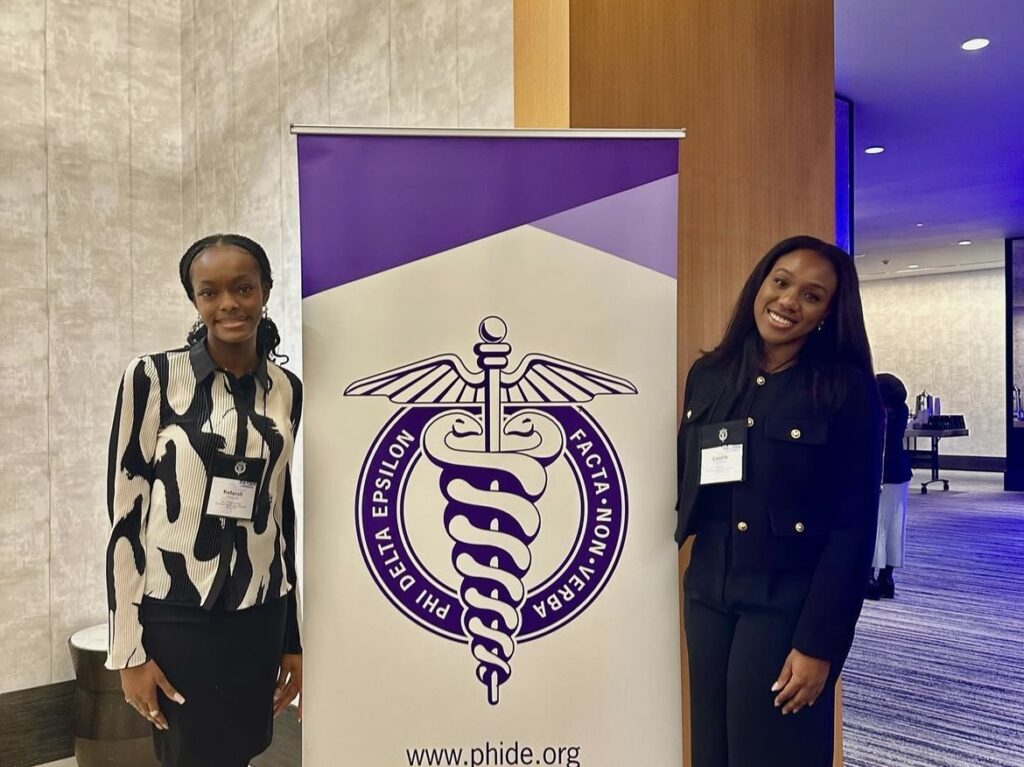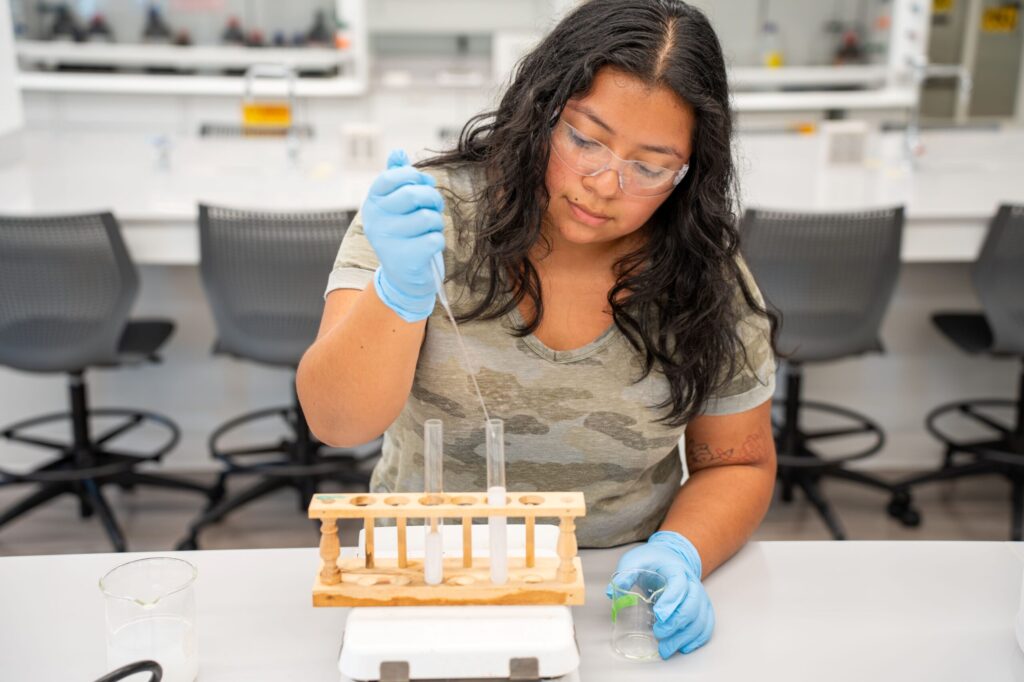- OFFERED AS
Hands-on learning from the field to the lab.
Biology encompasses the study of all living things: animals, plants, people. As a biology major at Oglethorpe, you’ll investigate the fundamentals of life via experiential learning that’s deeply connected to the real world. In fact, Oglethorpe’s innovative approach to science pedagogy is setting a standard nationwide. In 2016, biology professor Dr. Karen Schmeichel presented on Oglethorpe’s leading-edge curriculum at the American Society for Cell Biology.
The science curriculum at Oglethorpe empowers students to ask their own questions; to become experts in the practice of the scientific method; and to understand the process of science as well as its history. For example, Oglethorpe’s introductory Biological Inquiry course, which combines lab and lecture, anchored by four core modules of hands-on learning: bird behavioral ecology, worm genetics, frog heart physiology, and plant growth physiology.
Experiential learning continues with a sequential group of courses taken by all biology majors. These courses build on each other year after year, enabling students to learn hands-on with a type of worm that’s especially suited for biology research. Students learn how to breed and care for a worm colony, how to conduct genetic experiments, and finally, how to apply these skills in a real-life laboratory.
Oglethorpe’s small, supportive classes and highly dedicated professors help each and every student thrive in the classroom, in the lab, and in the field. Plus, research opportunities abound, from the student-accessible labs on campus, to high-powered labs at Emory (through our undergraduate research partnership), to field sites in urban Atlanta and around the state.
-
Real-World Experience
-
Life After Oglethorpe
-
Degree Requirements & Courses
As a major center for biotechnology, industry, healthcare, and government (like the Centers for Disease Control and Prevention), Atlanta is a great place to study biology. There are many relevant opportunities for internships, service, and other forms of experiential learning.
- The partnership between Oglethorpe and Emory enables talented Oglethorpe students to assist with real-world research in Emory labs. Oglethorpe students assist Emory scientists on work involving elegans, the worm that factors in their curriculum. OU students’ research has expanded findings about the mechanisms of Alzheimer’s, which could one day lead to new drug treatments. One student even contributed original research to the field of epigenetics, uncovering unique roles for two new genes.
- Lace up your boots and head out for some fieldwork. Atlanta is ideally positioned for convenient access to several of Georgia’s distinctive geographic regions – including the Blue Ridge, the Piedmont, and Atlantic coast. For courses such as Conservation Biology and Ecology, these field sites are the laboratories.
- Service learning is strongly integrated with the curriculum, at organizations like Northside Hospital, Brookhaven Animal Hospital, Center for Disease Control (CDC), Chattahoochee Riverkeepers, Fernbank Museum of Natural History, Mercer School of Pharmacy, Miami Children’s Hospital, Murnane Laboratories, Winship Cancer Institute, the American Cancer Society, Coaches Curing Cancer, Hospice Atlanta, and the Blue Heron Nature Preserve, where students have mapped invasive species to suggest strategies for their control.
- The spirit of inquiry abounds at Oglethorpe, as evidenced by the student research projects featured in our annual PRISM (Presentations of Research in Science and Mathematics). Recent project titles include the effects of extracellular matrix cues on axon production in PC-12 cells; mate choice in sea horses; and local and landscape determinants of nest box selection by bluebirds.
- There’s also the human physiology course where students design their own research projects — like two students who used themselves as guinea pigs to study the mammalian diving reflect, monitoring heart rate and blood pressure as they plunged their heads into water of varying temperatures.
- Students have completed internships at the Centers for Disease Control and Prevention, Emory’s Winship Cancer Institute, Chattahoochee Riverkeeper, Chattahoochee River National Recreation Area, Grady Memorial Hospital, Southface Institute and Zoo Atlanta.
The biology curriculum at Oglethorpe will also help you explore the wide variety of jobs available when you graduate. For example, guest speakers from relevant organizations often visit classes to discuss their career paths and current job duties. Recently those guest speakers include the Research Program Director at the American Cancer Society and the Curator of Amphibians and Reptiles at Zoo Atlanta.
Graduates have all the skills and experience they need to pursue further study and training in the fields of medicine, dentistry, nursing, pharmacy and more.
- Beyond the healthcare professions, graduates can pursue careers in public health, education, biomedical and biotechnology research, pharmaceutical sales, or wildlife management and conservation. Others become veterinarians, emergency medical technicians, or lab technicians working in a clinical or research setting.
- Recent alumni are enrolled in graduate and professional programs at Duke University, Georgia Regents University, Georgia State University, Georgetown University, George Washington University, University of California San Francisco, Philadelphia College of Osteopathic Medicine, University of Delaware, University of Georgia, University of Washington, Emory University, and Mercer University.
See degree requirements and course descriptions in the University Bulletin.
We want to meet you! Visit our campus...
Latest News
- Academics, Career Development, Featured
- Academics, Engagement, Featured
- Academics, Career Development, Featured





